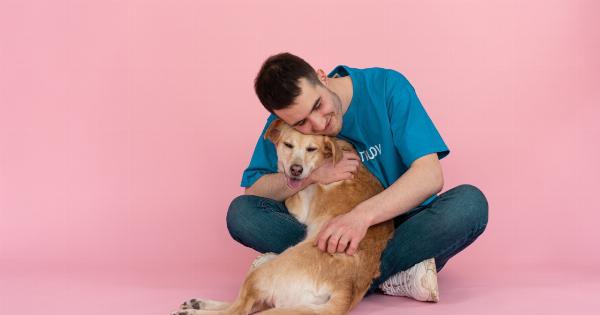Bringing home a new dog is an exciting and joyful experience. However, it also comes with its fair share of challenges and responsibilities.
To ensure a smooth transition and a happy home for both you and your new furry friend, it’s important to be mindful of certain pitfalls. Avoiding these pitfalls will not only help you establish a strong bond with your new dog but also promote their overall wellbeing. Let’s explore some common pitfalls new dog owners should steer clear of:.
1. Lack of Proper Training
Training is an essential aspect of responsible dog ownership. Failing to provide proper training can lead to a range of behavioral issues and frustrations for both you and your dog.
It’s crucial to invest time and effort in teaching your dog basic commands, leash manners, and appropriate behavior. Consider enrolling in a training class or consulting a professional trainer to ensure you have the necessary skills and knowledge to train your new dog effectively.
2. Inconsistent Rules and Boundaries
Dogs thrive on routine and clear boundaries. Inconsistency in enforcing rules can confuse your new dog and make it difficult for them to understand what is expected of them.
Establish consistent rules from the beginning and ensure all family members are on the same page. Avoid giving mixed signals or allowing certain behaviors at times but not others. Consistency will help your dog feel more secure and make training much easier.
3. Neglecting Socialization
Socialization is vital for a well-rounded and happy dog. Exposing your new furry friend to various people, animals, and environments from an early age helps prevent fear and aggression issues.
Avoid the pitfall of neglecting socialization by gradually introducing your dog to new experiences, sounds, and smells. Encourage positive interactions and provide treats or rewards to create positive associations. Consider puppy socialization classes or dog-friendly meetups to enhance your dog’s social skills.
4. Lack of Exercise and Mental Stimulation
All dogs, regardless of their breed or size, require regular exercise and mental stimulation. Neglecting these needs can lead to behavioral problems such as excessive barking, chewing, or digging.
Make sure to allocate dedicated time for physical exercise and incorporate mental challenges such as puzzle toys or obedience training. Engaging your dog’s mind and body will not only keep them physically fit but also prevent them from becoming bored and engaging in destructive behaviors.
5. Overlooking Health and Veterinary Care
Just like humans, dogs require regular health check-ups and vaccinations to stay healthy. One of the biggest pitfalls new dog owners can fall into is neglecting veterinary care. Schedule a visit to the veterinarian as soon as you bring your new dog home.
Your vet will give your dog a thorough health examination, update vaccinations, and provide guidance on flea and tick prevention, dental care, and other essential aspects of your dog’s well-being.
6. Ignoring Proper Nutrition
Diet plays a crucial role in maintaining your dog’s health and overall vitality. It can be tempting to rely on inexpensive or low-quality dog food, but this can have detrimental effects on your dog’s wellbeing.
Ensure you provide a high-quality, balanced diet that is appropriate for your dog’s specific breed, age, and health condition. Consult your veterinarian for dietary recommendations and avoid feeding your dog table scraps or foods that are toxic to them, such as chocolate or onions.
7. Not Creating a Safe Environment
Puppies and dogs are naturally curious, and they explore the world through their mouths. It’s essential to create a safe environment for your new dog by removing any potential hazards or toxic substances.
Store chemicals, medications, and household cleaning supplies securely out of reach. Keep small objects, electrical cords, and toxic plants also out of their reach. Providing a safe environment will prevent accidents and protect your dog from harm.
8. Neglecting Grooming and Hygiene
Grooming is not just about keeping your dog looking good; it’s also necessary for their comfort and health. Neglecting grooming can result in matted fur, skin infections, and other health issues.
Regularly brush your dog’s coat, trim their nails, and clean their ears as required. Different breeds have different grooming requirements, so research your dog’s specific needs and establish a grooming routine accordingly.
9. Failing to Be Patient and Understanding
Adjusting to a new home and family can be overwhelming for a dog, especially if they have had a difficult past. It’s crucial to be patient and understanding during this transitional period. Avoid the pitfall of expecting too much too soon.
Allow your dog time to settle in, establish trust, and bond with you and your family. Some dogs may have behavioral issues that require extra patience and professional help.
10. Relying Solely on Punishment
Using punishment as the sole means of correcting your dog’s behavior is not only ineffective but can also damage your relationship with them. Dogs respond better to positive reinforcement and reward-based training methods.
Focus on rewarding good behavior rather than punishing bad behavior. This will not only encourage your dog to repeat desirable behaviors but also strengthen the bond between you and your new companion.
Conclusion
Bringing home a new dog is an exciting adventure, but it comes with its challenges. By being aware of and avoiding these common pitfalls, you can ensure a smooth and fulfilling journey with your new furry friend.
Remember to invest time in training, establish clear rules and boundaries, prioritize socialization and exercise, provide proper veterinary care and nutrition, create a safe environment, maintain grooming and hygiene, be patient and understanding, and focus on positive reinforcement. With proper care and attention, you and your new dog will enjoy a happy and harmonious life together.




























